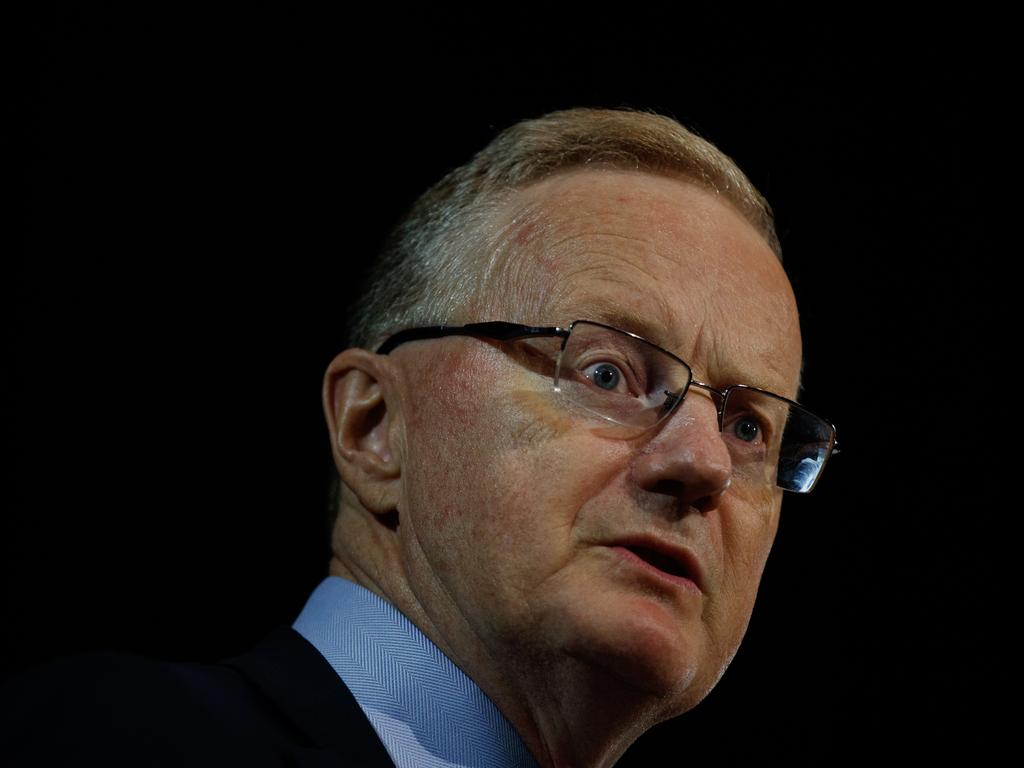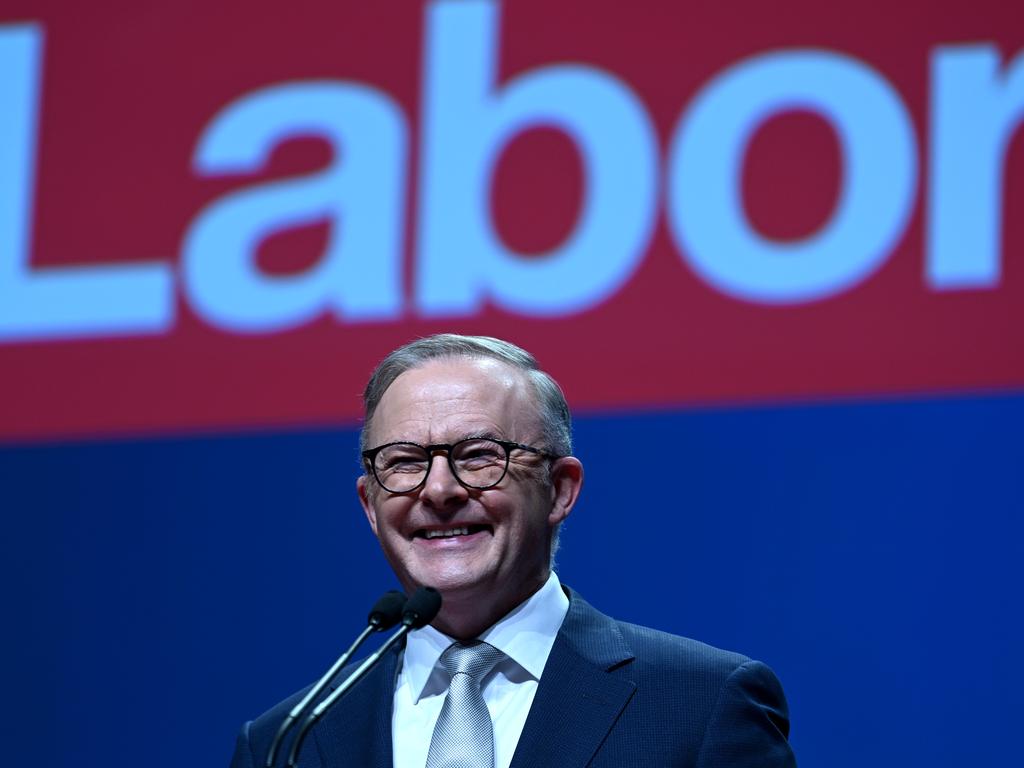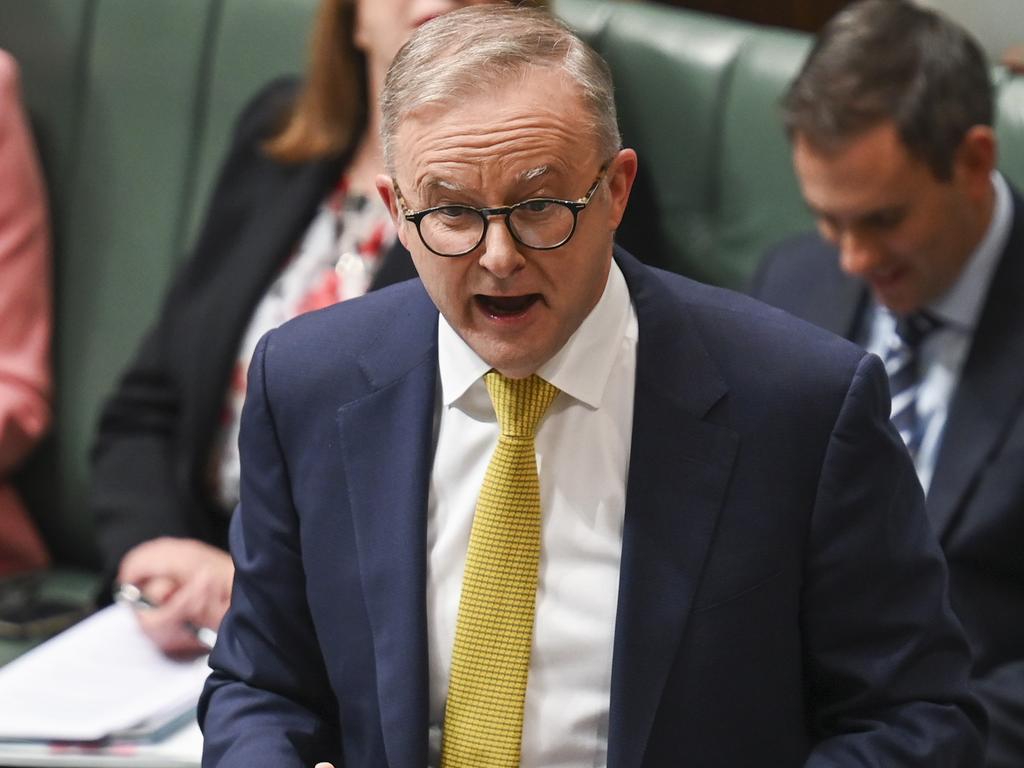High inflation will help slow economic growth to a crawl, says OECD
Australia is facing its worst two successive non-crisis years of growth in a generation, while the RBA watches for fresh signs of inflationary pressures and global instability.

Australia will be among the economic stragglers in the G20 next year, with persistently high underlying inflation, the OECD said, while upgrading its forecasts for global output and the world’s two leading advanced producers.
In an interim economic outlook published on Tuesday evening, the Paris-based body trimmed Australia’s projected increase in gross domestic product next year to 1.3 per cent, while holding steady this year’s expected growth at 1.8 per cent.
Outside of the pandemic, this would represent the weakest two years of growth since the early 1990s recession and reflects the Reserve Bank’s brutal squeeze on borrowers that has caused scheduled mortgage payments to rise to a record 9.7 per cent of household disposable income and intensified demands on the Albanese government to provide cost-of-living assistance to families.
Australian officials are resigned to years of torpid growth, believing the nation is on a “narrow path” to avoid a recession, with inflation beaten back to within the RBA’s 2-3 per cent target band in late 2025, but are closely monitoring the spike in oil prices and China’s woes in calibrating future responses.
Australia’s projected GDP growth next year, just below Treasury’s budget forecast 1.5 per cent, will be surpassed by 10 nations that attend G20 meetings.
Jim Chalmers said “high interest rates, persistent inflation and the slowdown in China, particularly its struggling property sector, are all weighing on the global outlook”.
“While we expect our economy to slow considerably over the coming year and the unemployment rate to tick up, we enter this period of uncertainty from an enviable position,” the Treasurer said. “We have a strong labour market, wages are getting moving again, and we continue to get good prices for what we sell to the world.”
Minutes released on Tuesday from this month’s RBA board meeting revealed the central bank contemplated raising its cash rate to 4.35 per cent from fears that inflation could remain above target for an extended time if productivity growth did not improve and price pressures on energy, rents and insurance endured.
“Members noted that the recent rise in petrol prices – an important input for households’ inflation expectations – highlighted that the process of returning inflation to target could be uneven,” the minutes said.
The RBA left rates unchanged for the third successive month, swayed by arguments that it was better to wait for further evidence of the fallout from its dozen interest rate rises and “there was a risk the economy could slow more sharply than forecast”.
As well, board members noted a sharper slowing in China was a risk to the global outlook, as its officials navigated the longer term challenges of slower growth and a remade Chinese economy.
The OECD raised its projection for world output growth this year to 3 per cent and cut its forecast to 2.7 per cent for next year, describing the two-year performance as “sub par”, under the weight of policy tightening to reduce inflation.
There was bright news about powerhouse democracies in the US, Japan and India, whose output is likely to rise by more this year than the OECD projected in June.
Treasury’s forecasts in May for these nations, too, look like being surpassed, with the OECD saying US output would grow by 2.2 per cent this year, more than double Canberra’s forecast.
Next year, which will be dominated by a presidential election campaign, US GDP will ease to 1.3 per cent.
The OECD projects Australia’s headline inflation will fall from 5.5 per cent this year to 3.2 per cent next year, as demand subsides.
Core inflation – which removes volatility and is the RBA’s preferred measure of price pressures – is proving to be persistent, with Australia’s rate revised up by the OECD to 5.9 per cent this year, the same as last year’s rate, but easing to 3.3 per cent next year.
The RBA minutes said: “Members noted that some further tightening in policy may be required should inflation prove more persistent than expected.”
The OECD said aggressive moves by the world’s central banks had led to a substantial fall in residential property values and housing construction, but in Australia, Canada and the US there had been a turnaround in prices because of “robust population growth and a limited inventory of houses for sale”.
“Across the major advanced economies as a whole, risks remain that falling house prices prompt households to curb consumption substantially or trigger a surge in mortgage defaults, though so far these have not materialised.

“At the same time, most countries have seen a sharp reduction in the volume of transactions and lending for house purchases, which may presage further weakness in housing markets.
“In the US, the euro area and the United Kingdom, these declines are comparable in percentage terms to those seen at the time of the global financial crisis.”
The rich nations’ policy think tank said it was most worried about the uncertainty around the strength and speed of how interest rate hikes slowed the economy; that persistence of inflation would require more policy tightening, potentially exposing financial vulnerabilities; and that a sharper-than-expected slowdown in China “would hit output growth around the world”.
“Monetary policy needs to remain restrictive until there are clear signs underlying inflation pressures have durably abated,” the report said. “Policy interest rates appear to be at or close to a peak in most economies, including the US and the Euro area, with policy judgments more finely balanced as the effects of higher interest rates become visible.
“Governments are faced with mounting fiscal pressures from rising debt burdens and extra spending on ageing populations, climate transition and defence.
“Enhanced near-term efforts to rebuild fiscal space and credible medium-term fiscal plans are needed to better align near-term macroeconomic policies and help ensure debt sustainability.”
Dr Chalmers said the OECD stressed the importance of countries rebuilding fiscal buffers so they were in a position to respond effectively to future shocks. “This is consistent with the Albanese government’s budget strategy and one of the reasons why delivering a surplus in 2022-23 is so important,” he said.
In line with pleas by former RBA governor Philip Lowe this month, the OECD called for fresh structural reforms to strengthen growth prospects: “Reducing barriers in labour and product markets and enhancing skills development would help to boost investment, productivity and labour force participation, and make growth more inclusive.
“A key priority is to revive global trade, an important source of long-term prosperity for advanced and emerging-market economies. Concerns about economic security should not prevent advantage being taken of opportunities to lower trade barriers, especially in service sectors.
“Enhanced international co-operation is needed to ensure better co-ordination and faster progress in carbon mitigation efforts.”








To join the conversation, please log in. Don't have an account? Register
Join the conversation, you are commenting as Logout